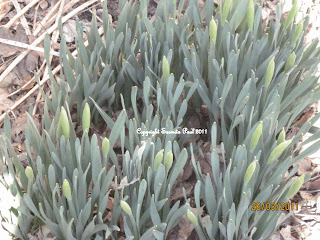"Water, water everywhere ..." - The Rime of the Ancient Mariner, S. T. Coleridge
The gnawing sound of the engine stopped at the middle of nowhere. Our boat was now circling a piece of rock that surged from the deep seas, rising skywards. It was awe-inspiring. The captain of the boat announced something.
 |
| the rock that was an island |
I looked around at him. I must have heard it wrong. This is in the middle of the ocean, with no land anywhere to be seen, the only thing above the water level is this boat, and I did not know how to swim. So I asked him to repeat what he said. He repeated the exact same words. We are going snorkeling here, he said, with skilled swimmers.
I was terrified. I trust the swimmers, but this is in the middle of nowhere! My less-than-a-week spouse said that I needn't go in the water if I didn't want to. I knew he was right. I also knew, this was a rare opportunity to see the world of the little mermaids I have always dreamt of.
The next moment, I was clinging on to the ropes of the boat, afloat in water, refusing to let them go, even when a skilled swimmer was just beside me. I finally did let go, and how glad I am that I did so. Just a dip into the water and the world changed. Corals in orange, in purple, in myriad colours were breathing just next to me. The fishes had colours which I only imagined could be in a fairy tale. It was a dreamland. As I was taken round the menhir with the swimmer literally dragging me around, I could rarely breathe thinking that all this exists beneath the veneer of the calm and the fierce waves! It was a breathtaking experience, an experience which I still recall when I want my mind to calm down. It was truely worth dying for.
Or, so I thought at that moment.
*******
A few years earlier ...
What a peaceful expanse it was. The sea had come alive with the colours of the sky, of the corals lying underneath the shivering ripples, and of the colours that the distance made one see.
 |
| the beauty of the sea; Andamans, India |
|
|
A week later this haven of corals was submerged for a few months.
It was 2004. The year the deadly tsunami struck several south-asian countries - Indonesia, Sri Lanka, India and Thailand. I looked at the images on the television in disbelief. I had been there, just a week ago.
A family of four had been there, when that unexpected wrath of nature had lashed out in Andamans. The father had gone out to fetch the morning tea, while the others were waking from their deep sleep. Suddenly the water started flooding the sea-beach guest house. The father rushed back, only succeeding to wake them all. The water level had now risen to touch the ceiling fan. The father, the mother, the brother and the little sister hung to the blades of the fan, praying either survival or annihilation for all the four. Suddenly the sister lost her grip and she fell into the water of the seas. The brother made a dash for her. She survived. In another instant the water had started receding as unexpectedly as it had risen. The family of four ran out of the guest house, starting a breathless run for the higher ground. As their legs stopped with tiredness and tension, they looked back - the guest house was no more there, swept into the sea that they had admired the previous evening from the courtyard. A sea that had calmed their senses, the waters that had the miraculous touch of peace, has now the quality of nightmares for a very long time to come.
*******
Water has this peculiar quality of enchanting as well as threatening. It hides the secrets - of life and of death. Look at it from an objective distance and you will find this is not unnatural. It is a cycle of existence and annihilation. A cycle that is epitomised in the hindu mythology of the trinity -
brahma, bishnu, maheshwar. The creator, the nurturer, the destroyer. It is actually more than that, I like to believe.
Water is life. From the embryonic stage to the stage of death, when the parched throat seeks a drop of it before the final let-go, it is water all the way. Life is not a set of compartmentalised stages of existence. It is a flow. The power of life lies in this power of being a flow. A flow that is mild in the plains of existence and rapid in the caverns of the mountains. A flow that adapts with the changing scenario. Water is the essence of change. The container of water defines the shape in which you can see it. Otherwise, water is
bimūrta, an abstract existence - without form, without colour. It is without prejudice, without any pre-conceived idea of anything. It is it and nothing else. We add colour and form to it.
Can you not see life is also that abstract to which only we, the fearful and the enchanted, can give attributes? So, what form and meaning are you giving to your existence? Share them with all of us.
Images:
"the rock that was an island" - Andaman Islands, India, 2008. by self/Arijit.
"the beauty of the sea" - Andaman Islands, India, 2004. by self.




























